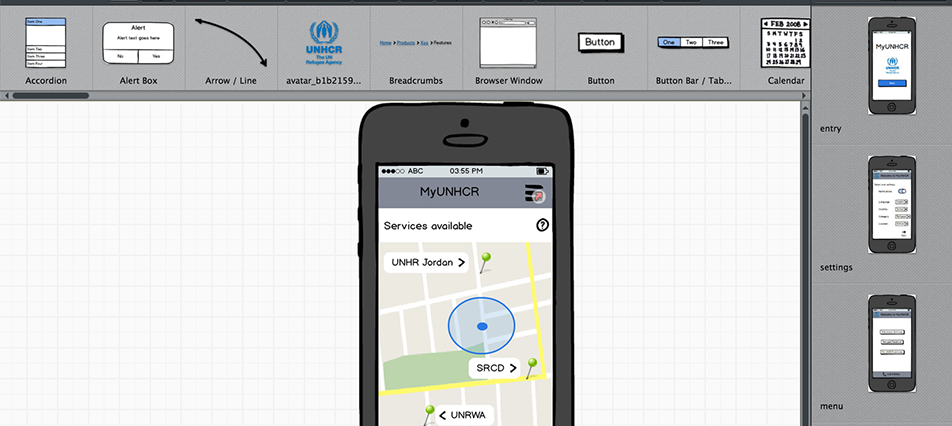The crisis in Syria has already driven 3 million people to flee the country. In 2014 as they poured into neighboring countries, UNHCR was registering more than 100,000 Syrian refugees each month.
A core part of UNHCR’s mandate to protect refugees is to communicate information to them. But complex settings and ever-increasing numbers mean the current mechanisms available to disseminate information are limited and inefficient, causing additional strain on refugees and UNHCR staff.
Innovation Fellows, Diego Batista, Erin Hayba, Maarouf Issaka-Toure, Mariann Urban, Had Ghosn, and Natalia Baal, noticed that refugees often travel long distances and spend hours waiting in lines outside UNHCR offices to meet with a staff member—frequently just to get more information, report an incident, or submit a required document.
A mobile application that created a free and easy line of communication between UNHCR and refugees would save time and resources for refugees and staff.
This team of iFellows worked with refugees to design an app that could send and receive information, report incidents and schedule appointments. It gives them more control over their communication with UNHCR and better access to information and services.
With most refugee families owning a mobile phone, the app will be accessible and efficient, allowing them to improve communication and save time in a cost-effective and dignified way.
If you’d like to repost this article on your website, please see our reposting policy.

